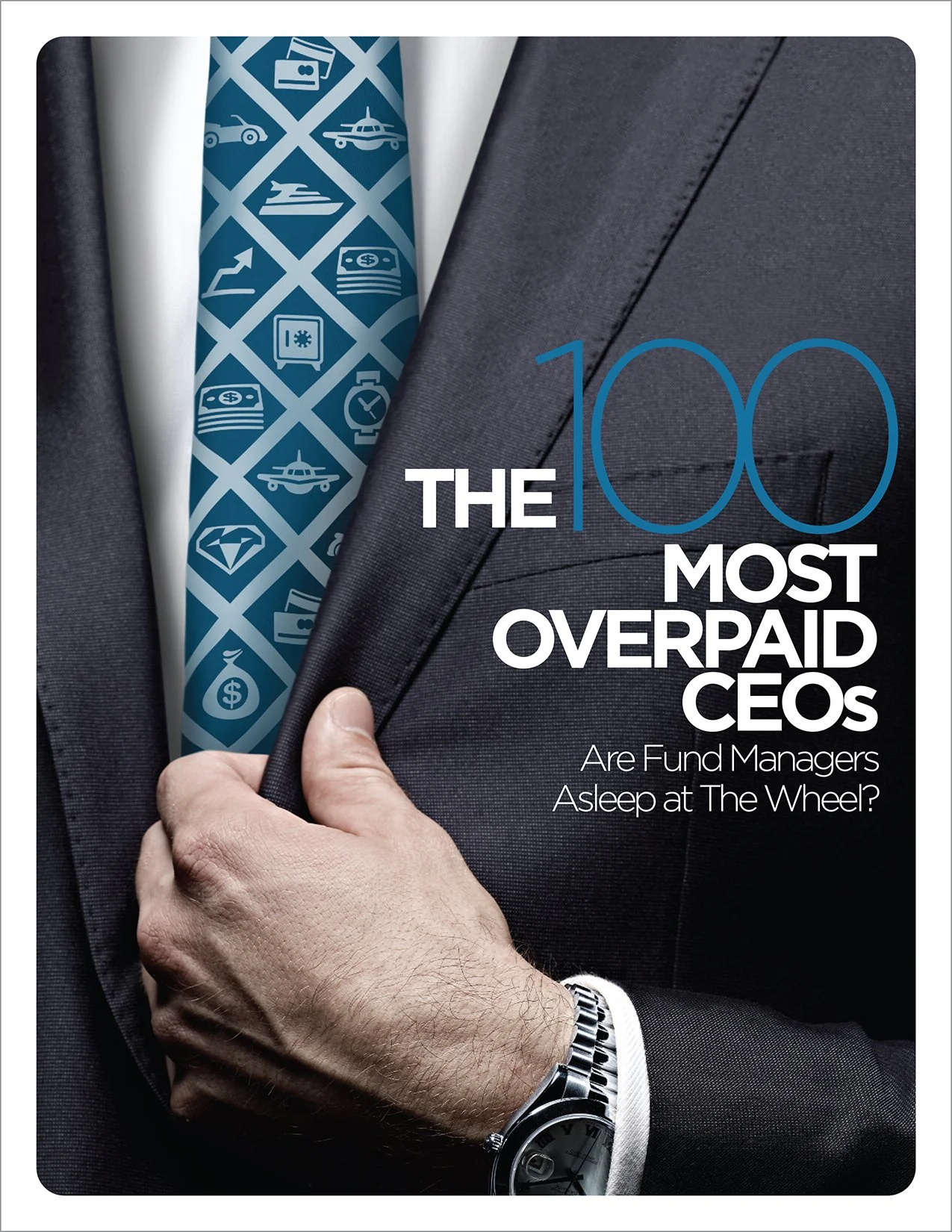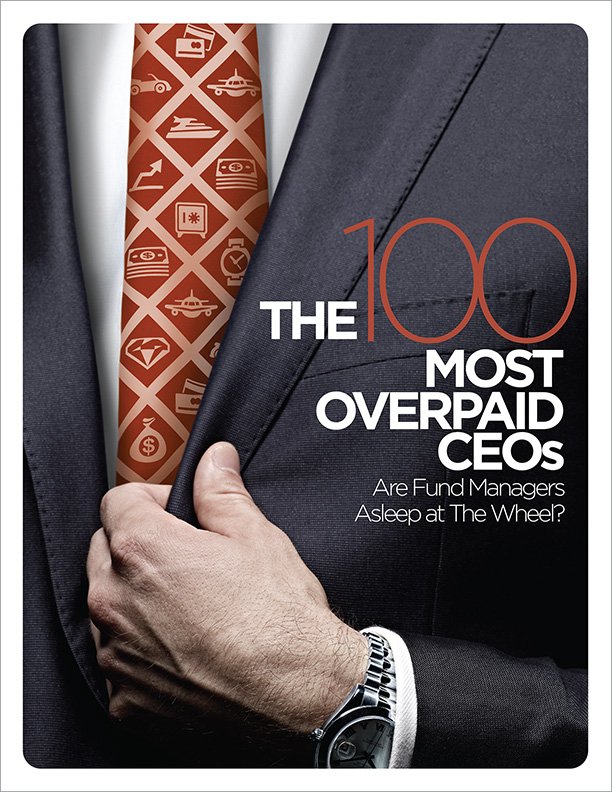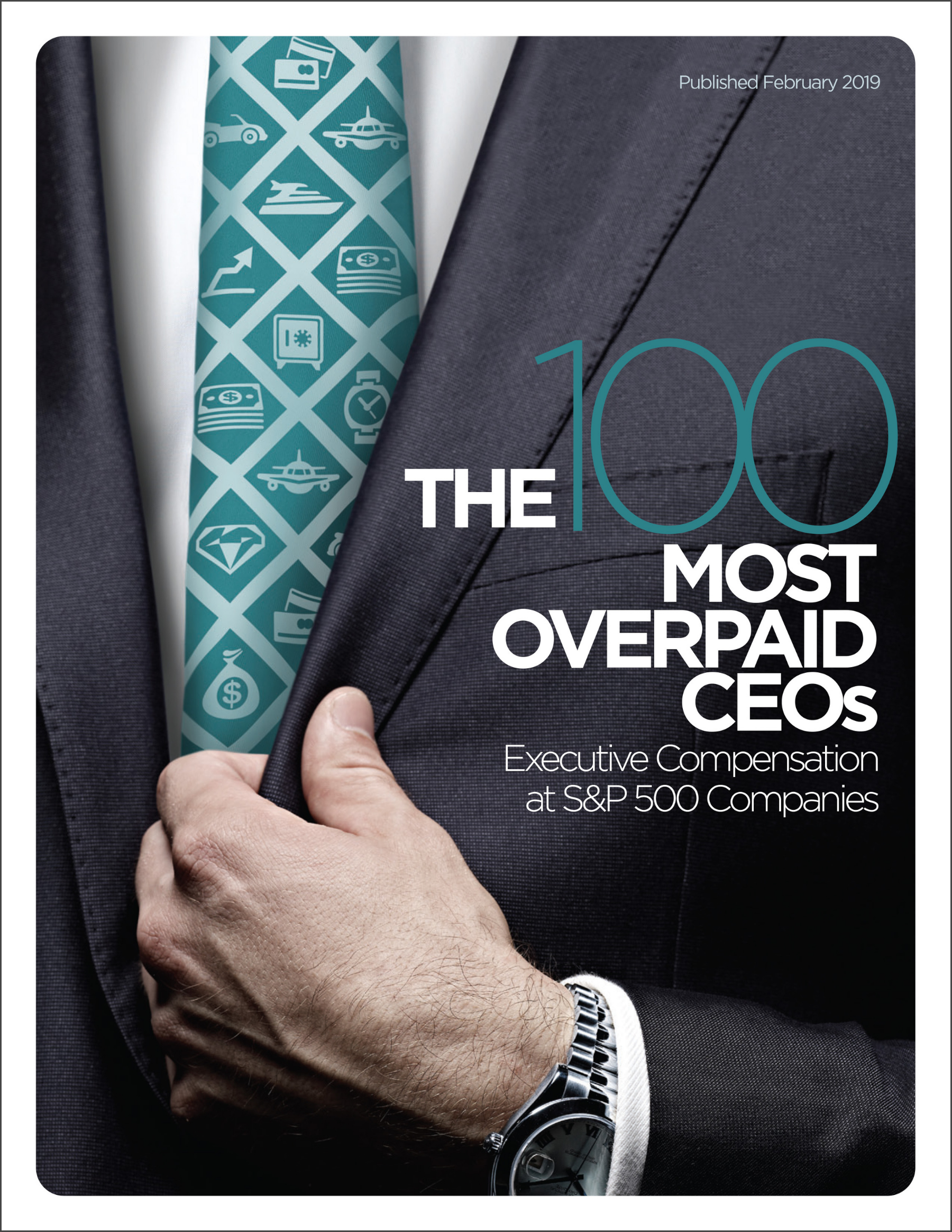REPORTS
Linking greenhouse gas emission reduction targets to executive compensation is one important lever by which CEOs can be incentivized to achieve timely and systematic progress on climate. This second edition of the Pay for Climate Performance report analyzes how effectively 100 of the largest U.S. companies by market capitalization, across 11 sectors of the economy, are currently linking GHG emissions reduction incentives to CEO remuneration. These 100 companies collectively represent a market capitalization of $28 trillion.
For the past nine years, As You Sow has issued a report identifying the 100 Most Overpaid CEOs among the companies in the S&P 500 index and analyzed the voting practices of large financial managers, mutual funds, and pension funds. For its 10th year, we identify the Overpaid CEOs at annual meetings held between July 1, 2022 and June 30, 2023.
For the past nine years, As You Sow has issued a report identifying the 100 Most Overpaid CEOs among the companies in the S&P 500 index and analyzed the voting practices of large financial managers, mutual funds, and pension funds.
Linking greenhouse gas (GHG) emissions targets to compensation is one important means by which CEOs can be incentivized to achieve timely and systematic progress on climate. This report is a first step in assessing how effectively companies are currently linking GHG emissions reduction incentives to CEO pay.
This is the eighth year As You Sow has issued this report and a year where COVID-19 influenced voting outcomes. Shareholder opposition to CEO pay packages increased in the year ended June 30, 2021. CEO pay also continued to increase compared to the previous year.
As we publish our 2021 report, CEO pay is receiving intense political focus. When company performance is considered, the most overpaid CEOs are disproportionately overpaid.
As we publish our 2020 report, CEO pay is receiving intense political focus. When company performance is considered, the most overpaid CEOs are disproportionately overpaid.
This 2019 study is the fifth report of our research results. During these five years, what has changed? Quite a bit, and not enough. Significantly, more large shareholders are voting against more CEO pay packages. Those who are not are more isolated and defensive.
The fourth report in the series, The 100 Most Overpaid CEO: Are Fund Managers Asleep at the Wheel? highlights the fund managers who continue to approve these pay packages at staggering rates (many funds approve nearly 100% of the pay packages they vote on), and contrasts them with those who take a stance against excessive pay with their votes.
The third report in the series, The 100 Most Overpaid CEOs: Are Fund Managers Asleep at the Wheel? highlights the forces behind disproportionate pay and the fund managers who continue to approve these pay packages.











